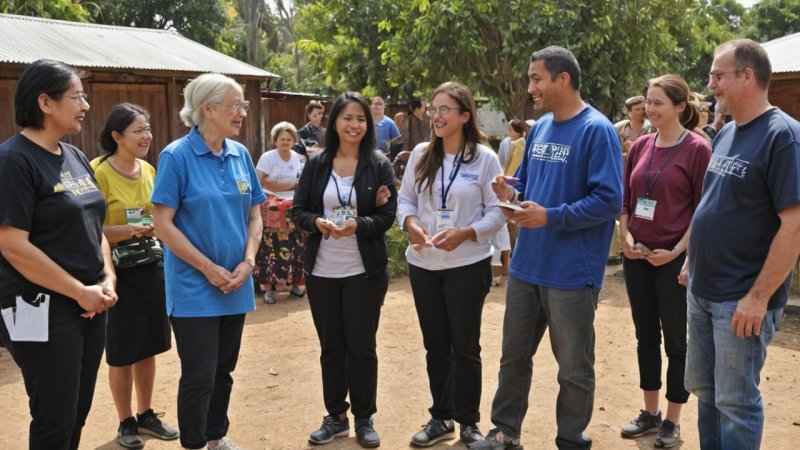Volunteering abroad is an enriching experience that allows you to contribute to communities while immersing yourself in a different culture. However, navigating cultural norms can be challenging, especially when you want to ensure that your actions are respectful and effective. Understanding and adapting to these norms will enhance your experience and foster positive relationships with the locals. Here are some key points to consider when volunteering in a foreign country.
Research Local Customs
Before you embark on your journey, take the time to research the customs and traditions of the country you will be visiting. Different cultures may have unique practices regarding greetings, clothing, and social interactions. For instance, in some Asian countries, bowing is a common form of greeting, while in others, a firm handshake is preferred. Understanding these nuances will help you avoid unintentional faux pas.
Dress Appropriately
Clothing can significantly impact how you are perceived in a foreign culture. Many countries have specific dress codes, especially in rural areas, religious sites, or when volunteering with certain organizations. It’s essential to dress modestly and in alignment with local standards. For example, in many Middle Eastern countries, women may be expected to cover their arms and legs, while men should avoid wearing shorts in public places.
Practice Active Listening
Effective communication goes beyond speaking; it involves listening actively. When interacting with locals, show genuine interest in their stories and perspectives. This practice not only builds rapport but also helps you understand cultural contexts better. Ask open-ended questions and be mindful of non-verbal cues, as gestures can vary widely across cultures.
Be Mindful of Social Hierarchies
Social structures can differ greatly from one culture to another. In some societies, age and status play a significant role in interactions. Be aware of who holds authority and show respect accordingly. For example, in many Asian cultures, elders are highly respected, and it’s customary to stand when a senior enters the room. Understanding these dynamics will help you navigate social situations more smoothly.
Adapt to Communication Styles
Communication styles can vary widely, ranging from direct to indirect. While some cultures appreciate straightforwardness, others may find it rude. Pay attention to how locals communicate and adjust your style accordingly. For instance, in many Latin American countries, it’s common to engage in small talk before getting to the point, while in some Northern European countries, directness is valued. Adapting your approach will facilitate better understanding and connection.
In conclusion, navigating cultural norms while volunteering abroad is essential for a successful and fulfilling experience. By researching local customs, dressing appropriately, practicing active listening, being mindful of social hierarchies, and adapting to communication styles, you will not only respect the culture you are engaging with but also enrich your volunteering experience. Embrace the opportunity to learn and grow, and you will leave a positive impact on the community you are serving.






